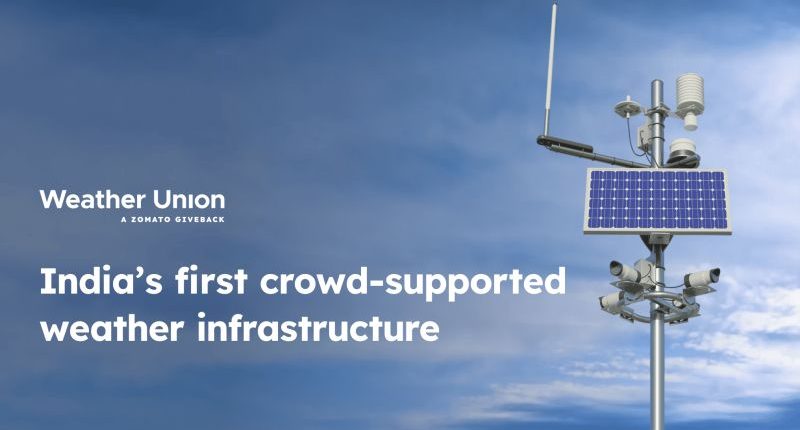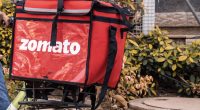In a move that promises to disrupt the weather data landscape in India, Zomato has unveiled a new initiative called WeatherUnion. This project establishes India’s first crowd-sourced weather infrastructure, which is set to provide localized, real-time updates on key weather parameters.
According to Goyal and other reports, Weather Union boasts a vast network of over 650 on-ground weather stations, which are currently deployed in 45 major Indian cities. This network, the largest private infrastructure of its kind in the country, aims to capture crucial weather parameters like temperature, humidity, wind speed, and rainfall with a high degree of precision. This data collection will provide a more detailed picture of weather patterns across India, particularly in locations where traditional weather stations might be sparse. Zomato plans to eventually expand this network in the near future, encompassing a wider range of Indian cities and offering a more comprehensive national weather picture.
“Excited to unveil India’s first crowd-supported weather infrastructure, weatherunion.com. A proprietary network of 650+ on-ground weather stations, it is the largest private infrastructure of its kind in our country,” Deepinder Goyal, Zomato CEO, wrote in a post on LinkedIn. “Also, a lot of Zomato employees have hosted weather stations at their homes. As we look forward to further expanding this infrastructure, we welcome volunteers who want to provide us space on their premises to install these weather stations and contribute to nation building,” he added. It is a not-for-profit business.
What would this development result in? For one, the extensive network of weather stations promises a more detailed picture of weather patterns across India, particularly in areas with limited traditional weather station coverage. This data can significantly improve weather forecasting accuracy, especially for localized events. And for a delivery aggregator like Zomato, real-time weather data can provide it with a better understanding of weather conditions across different delivery zones. This information can be used to optimize delivery routes, considering factors like rain, wind, and traffic disruptions caused by bad weather, and by anticipating these conditions, Zomato could even reduce delivery times. Improved weather forecasts can help Zomato predict situations where deliveries might be impacted by severe weather, while riders will be able to plan their routes accordingly during harsh weather conditions.
To add to this, Zomato will be providing free access to all the weather data collected by its network through an API (Application Programming Interface) at no additional cost. This allows institutions and companies across India to leverage this valuable information for various purposes. This move is framed within Zomato’s ‘Giveback’ initiative (the firm’s social responsibility program). “At Zomato, it was crucial for us to have access to precise and real-time weather information to make the right business decisions to serve our customers better. Hence, we took it upon ourselves to develop a solution capable of empowering us on this front,” Goyal noted.
The Tech Portal is published by Blue Box Media Private Limited. Our investors have no influence over our reporting. Read our full Ownership and Funding Disclosure →






